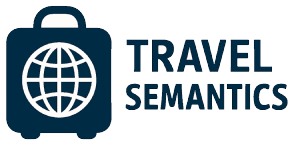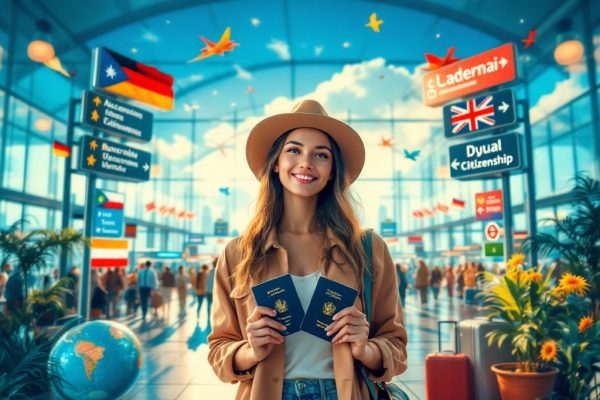Is Traveling a Hobby or a Lifestyle?
Do you dream of exotic locales and thrilling adventures? Discover whether travel is a relaxing hobby or a life-changing pursuit. Explore the differences between hobbyist travelers and those who embrace travel as a lifestyle, including digital nomads. Learn practical tips for planning, budgeting, and balancing travel with your daily life. Uncover the secrets to funding your dream adventures and making travel a rewarding part of your life. Start exploring today!
Important information

- Travel can be a hobby (occasional trips) or a lifestyle (integrated into daily life).
- Hobbyist travelers prioritize relaxation and short escapes, while lifestyle travelers seek cultural immersion and personal growth.
- Digital nomads work remotely, allowing them to travel extensively and experience different cultures.
- Financial planning and budgeting are crucial for both hobbyist and lifestyle travelers. Saving strategies, managing expenses, and exploring additional income sources are important for funding trips.
- Balancing travel with daily commitments requires careful planning, prioritizing, utilizing technology, and open communication with employers or schools.
Is Traveling a Hobby or a Lifestyle?
Traveling is a cherished pastime for many, providing an opportunity to relax and experience new cultures during vacations. For some, however, travel becomes more than just a hobby; it transforms into a lifestyle. These individuals, often digital nomads, seamlessly weave exploration into their everyday lives.
Hobbyist Travelers
Enjoy occasional trips, often during vacations.
View travel as a way to unwind and escape from routine.
Prioritize comfort and convenience during their travels.
Lifestyle Travelers
Embrace travel as an integral part of their daily lives.
Seek deeper cultural immersion and personal growth through exploration.
Often work remotely, allowing them to travel extensively.
Understanding Traveling as a Hobby
Traveling offers incredible joy and personal enrichment, opening doors to new places, cultures, and cuisines. Beyond casual enjoyment, it demands planning and budgeting to seamlessly integrate trips into your life.
Hobbyist Travelers
Hobbyist travelers prioritize relaxation and fun, focusing on vacations and short escapes. Many enhance their journeys through activities like photography or travel blogging, indulging their passion without constant travel.
Travel Lifestyle
This differs significantly from a travel lifestyle, which integrates exploration into daily life – a much greater commitment.
What Defines a Travel Hobbyist?
Travel enthusiasts love exploring new places, immersing themselves in different cultures, and creating lasting memories. Venturing beyond their comfort zones enriches their lives. Careful planning often precedes these adventures, including visiting landmarks, enjoying local cuisine, and taking breathtaking photos. Some travelers even document their experiences on travel blogs. Ultimately, their passion stems from personal fulfillment and the thrill of discovery. Travel fuels their desire to experience the world, fostering a deeper understanding of themselves and the world around them.
How Travel Planning Enhances the Experience
Planning your travels enhances the adventure by allowing you to define clear objectives and maximize your trip’s potential. It offers a refreshing escape from routine, and thoughtful preparation leads to a more rewarding experience.
The Lifestyle Aspect of Traveling
A travel-centered lifestyle seamlessly integrates exploration into daily routines, prioritizing discovery and making it a core element of one’s identity. This often entails remote work, enabling extended stays in foreign countries or even perpetual exploration. Such a lifestyle fosters adaptability, valuing cultural immersion and personal development. Digital nomads exemplify this, working online as they traverse the globe. Others embrace long-term travel, embarking on extended trips or residing abroad. Ultimately, it’s about structuring life around the journey. A travel-centered lifestyle offers numerous benefits:
Enhanced Adaptability
constant exposure to new environments and cultures cultivates resilience and adaptability, preparing individuals for unexpected challenges and fostering a flexible mindset.
Cultural Immersion
immersing oneself in different cultures provides firsthand experience of diverse customs, traditions, and perspectives, broadening understanding and appreciation for the world.
Personal Development
stepping outside of one’s comfort zone and embracing new experiences promotes self-discovery, personal growth, and a deeper understanding of oneself.
Global Networking
traveling and working remotely creates opportunities to connect with people from various backgrounds, building a diverse network of personal and professional contacts.
What is Travel as a Lifestyle?
Embracing travel as a lifestyle integrates exploration and discovery into your everyday routine, fostering personal growth through encounters with diverse cultures and continuous learning. Travel becomes central, shaping daily decisions and routines. This often involves extended journeys, with some adopting a nomadic existence, while others simply relocate more often. It’s a life brimming with adventure.
Digital Nomadism and Long-term Travel
Digital nomadism combines work and travel, allowing you to explore the globe while earning a living. Imagine working from a Balinese beach or a Parisian cafe—this is the reality for many digital nomads. They value flexibility and experiences, working from anywhere with an internet connection. This lifestyle offers incredible freedom, seamlessly blending travel into daily life. However, it requires discipline and adaptability. Managing time zones and diverse work environments can be challenging, and maintaining a healthy work-life balance is crucial. Digital nomadism offers a unique perspective on the world, built on exploration and freedom. It provides the opportunity to experience different cultures, broaden your horizons, and create a truly global lifestyle.
Advantages of Digital Nomadism
- Flexibility and freedom to work from anywhere,
- Opportunity to travel and experience new cultures,
- Improved work-life balance and reduced stress,
- Increased creativity and productivity,
- Greater control over your work schedule.
Challenges of Digital Nomadism
- Difficulty maintaining a consistent work schedule,
- Challenges in managing finances and taxes,
- Loneliness and isolation,
- Lack of access to reliable internet and other resources,
- Difficulty building a strong professional network.
Challenges and Considerations in Traveling
Integrating travel into a busy schedule requires careful planning and prioritization. Balancing work or studies with a thirst for exploration can be challenging. Staying connected with family and friends becomes more difficult, and personal responsibilities and self-care are often neglected.
Financial stability underpins sustainable travel. Careful money management and a realistic budget are essential. This should encompass transport, accommodation, food, activities, and any visa fees. Many travelers supplement their income through freelancing or part-time work. Sticking to a budget on the road is crucial for extended travel.
Balancing Travel with Daily Life Commitments
Prioritize and Plan: Effectively prioritize tasks and create a realistic itinerary that complements your work or school schedule. Allocate specific times for research and booking to enhance organization.
Utilize Technology: Leverage travel apps and websites to streamline the planning process. They offer efficient tools for booking, managing itineraries, and discovering deals.
Communicate Transparently: Discuss your travel plans openly with your boss or teachers to ensure transparency and facilitate any necessary arrangements for your absence.
Build a Support Network: A strong support network of family and friends can assist with managing responsibilities at home or work during your travels.
Prioritize Experiences: Prioritize experiences within your time and budget for more fulfilling trips, preventing overextension and maximizing enjoyment.
Embrace Flexibility: Adaptability to unforeseen circumstances is key for smoother travels. Be prepared to adjust plans as needed and enjoy the unexpected.
Financial Management and Budgeting for Travel
Generate income while traveling. Explore opportunities like remote work, freelancing, or monetizing skills such as travel blogging, photography, or tour guiding.
Implement smart saving strategies. Establish a dedicated savings plan specifically for travel or minimize living expenses to free up funds.
Maintain a travel budget and track expenses diligently. Careful budgeting and expense tracking are essential for making your travel funds last longer and ensuring sustainable travel.
Practical Tips for Embracing Travel
Building your travel fund is easier than you think. Set up automatic transfers to a dedicated savings account, making saving effortless. Explore high-yield savings accounts or short-term, low-risk investments for potentially better returns. Establish achievable savings goals based on your income and expenses, monitoring your progress and adjusting as needed.Researching travel costs helps determine your target savings amount. This includes flights, accommodation, activities, food, and visas. Prioritize travel by cutting back on non-essentials like dining out or entertainment to maximize your savings.
Boost Your Savings
To accelerate your savings, explore extra income streams such as:
- freelancing,
- a part-time job,
- selling unused items.
Track Your Spending
Monitor your spending habits to identify areas where you can:
- reduce expenses,
- allocate more funds towards your travel goals.
Building a Travel Fund for Major Trips
Jumpstart your travel fund by opening a dedicated savings account and setting up automatic transfers – it’s the easiest way to save without even thinking about it.
Explore travel credit cards and their rewards programs for valuable perks.
A side hustle, even a small one, can significantly boost your travel budget.
Trimming daily expenses, like packing lunch and brewing coffee at home, frees up more cash for adventures.
Remember to enjoy life’s little pleasures while making these small but impactful changes.









